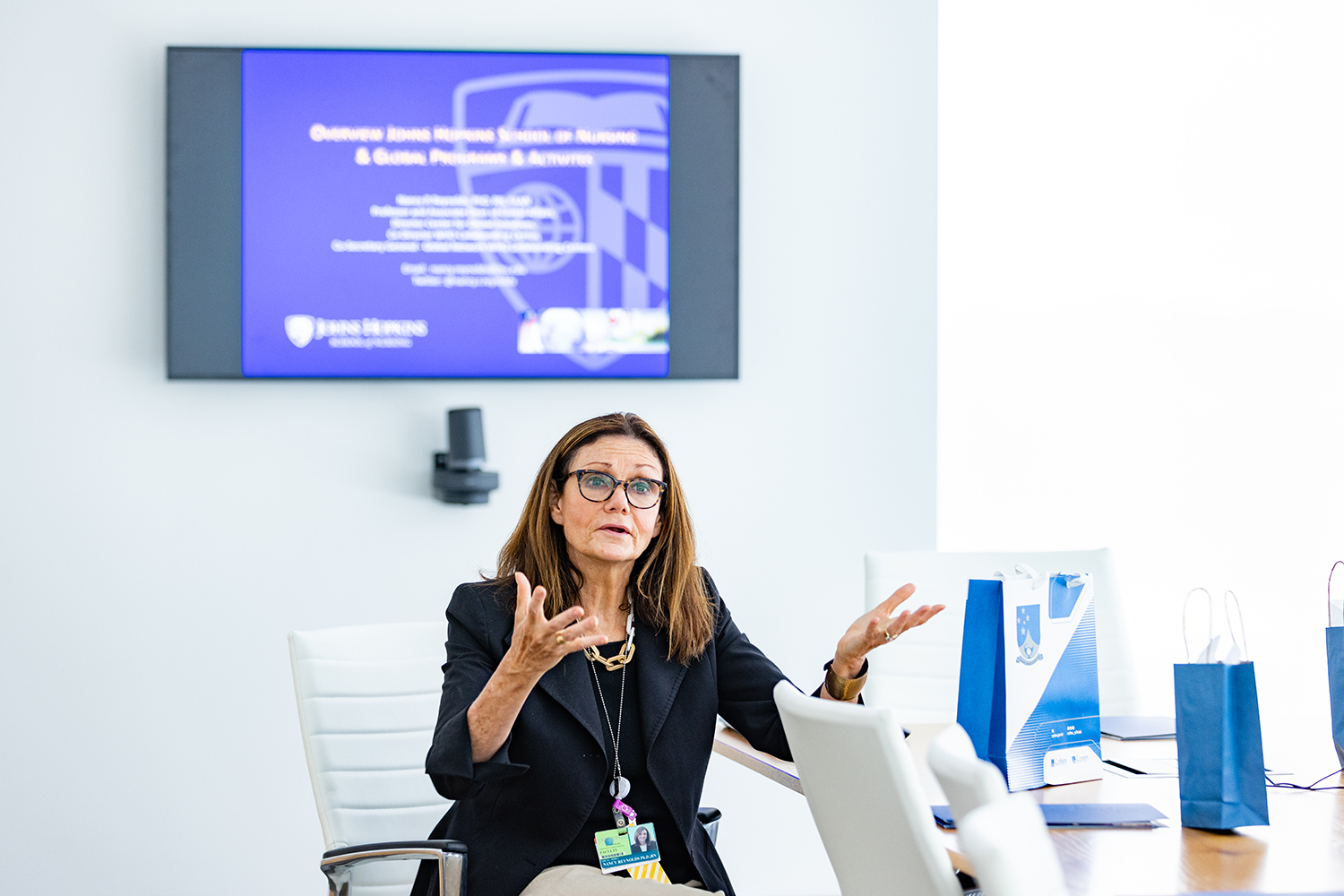PAHO/WHO document highlighted essential steps toward global health improvement through nursing with key input from JHSON faculty, staff, and students
In 2015, the United Nations looked down the road a decade and a half at what would constitute a better life in 2030 and, with all member states approving, adopted a series of Sustainable Development Goals. These were economic, environmental, and social improvements designed to eradicate poverty and improve human lives, with health a major factor in each.
Now halfway down that road, there remains plenty of critical work ahead, beginning with cementing a commitment to do it. Against this backdrop, scholars and students from the Johns Hopkins School of Nursing’s Center for Global Initiatives set about crafting a call, via the Pan American Health Organization, to undergird nurses across the Americas to begin the change as an expanded, empowered workforce.
In The Strategic Importance of National Investment in Nursing Professionals in the Region of the Americas, a collaboration led at the Johns Hopkins School of Nursing by Nancy Reynolds, PhD, MS, RN, FAAN, makes its case—based on the evidence of nurses’ “expertise, global presence, and reach to remote areas, vulnerable populations, and minority groups”—that the time for undervaluing, underfinancing, and undertraining the nursing profession is over.
Reynolds, associate Dean of Global Affairs and director of the CGI, and former CGI Manager Angie Chang Chiu enlisted students Haley Williams (DNP program), Rachel Storms (MSN), and Jared Shepard (Bloomberg School of Public Health) to help shape the report as a PAHO/WHO Collaborating Center for Nursing Knowledge, Information Management and Sharing.
For Williams, the experience was a first and, she hopes, not nearly the last. “It honestly changed the trajectory of my career, as I was exposed to people working to change the future of nursing globally in roles that I didn’t even know existed,” she explains. “The upcoming generation of nursing leaders across the world will play a key role in determining what that change looks like. On a personal level, I realized I want to be involved in that work, particularly in the development of the advance practice nursing role in low- and middle-income countries.” Also, “I’m proud of how it turned out.”
“Nurses are essential to the strengthening of health systems and achievement of health equity and the Sustainable Development Goals.”
“We were delighted to contribute to the PAHO/WHO policy brief that provides a framework for strategic investment in nursing in the Americas,” Reynolds adds. “Nurses are essential to the strengthening of health systems and achievement of health equity and the Sustainable Development Goals.”
As presented by the brief, the inequities are stark: “In the Region of the Americas, there are approximately 9 million nursing professionals, representing more than 56% of the health workforce, yet 87% of the nurses in the Region are in Brazil, Canada, and the United States,” the brief reports.
And they are entrenched: “As health care services expand in low- and middle-income countries, there is an increased need for qualified and trained nurses. Every country needs a competent, motivated, well-distributed, and well-supported health workforce as part of the global drive for universal health. Nurses are central to these efforts.” The answer: Invest. A few others from the policy brief?
Education: Recruit and retain nursing faculty; evaluate, update, and standardize curricula; promote lifelong learning. “Formal, continuous learning opportunities embedded into professional life have been shown to raise the quality of care, improve patient outcomes, and increase job satisfaction among nurses.”
Jobs: “Countries should improve working conditions, provide opportunities for professional and educational development, and improve health systems to enhance the health labor market and avoid losing nurses to migration.”
Leadership: “Nurses should be leaders in the design of health care systems and their implementation/organization, not just in delivery of care.”
Service Delivery: Guaranteed access to health care. One key idea from the brief calls for increased mobility—standardized regulations across nations so caregivers can over time be spread around more equitably.
Visit nursing.jhu.edu/cgi.

